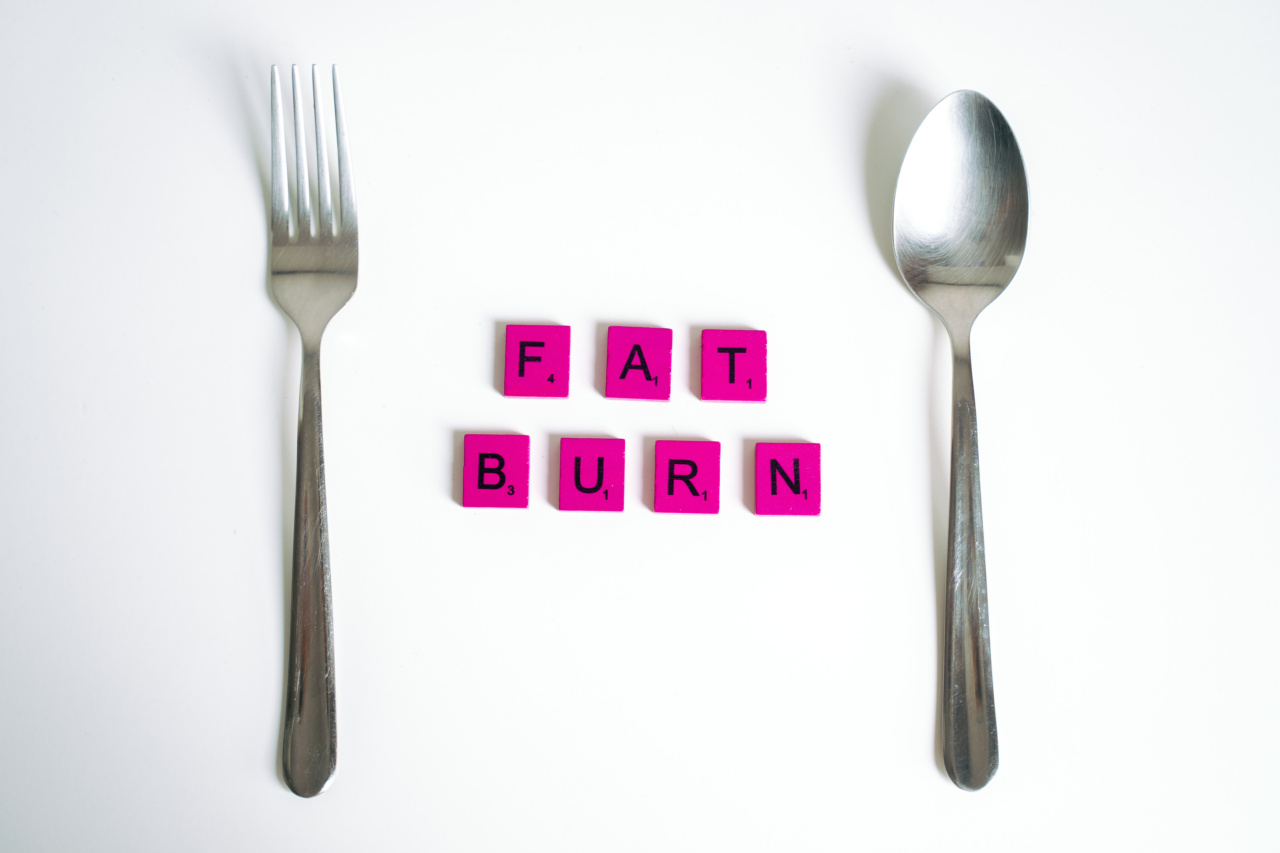Losing weight and achieving a lean body is a goal that many individuals aspire to. One of the most effective ways to burn fat is by following a well-balanced diet that supports the body’s natural fat-burning mechanisms.
In this article, we will explore the best diet for fat burning and provide you with valuable insights and tips to help you achieve your weight loss goals.
The Science Behind Fat Burning
Before delving into the best diet for fat burning, it is essential to understand the science behind how our bodies burn fat. When we consume food, our body breaks down carbohydrates into glucose, which is then used as the primary source of energy.
However, when there is an excess of calories, our body stores the excess glucose as glycogen in the liver and muscles.
When we engage in intense physical activity or create a calorie deficit through proper nutrition, our body turns to stored fat as a secondary source of fuel. The process of breaking down stored fat into usable energy is known as fat burning.
By creating the right conditions through diet and lifestyle, we can optimize the body’s fat-burning potential.
The Role of Macronutrients in Fat Burning
A well-rounded diet should include three essential macronutrients: carbohydrates, proteins, and fats. Each macronutrient plays a crucial role in our body’s function and impacts our fat-burning potential.
Carbohydrates
Carbohydrates are the body’s primary source of energy. However, not all carbohydrates are created equal. Refined carbohydrates, such as white bread, sugary snacks, and soda, can lead to weight gain and hinder fat burning.
On the other hand, complex carbohydrates found in fruits, vegetables, and whole grains provide essential nutrients while promoting satiety and optimizing fat burning.
Proteins
Protein is an essential macronutrient that aids in muscle growth and repair. Including adequate protein in your diet is crucial for fat burning as it helps maintain lean muscle mass.
Lean protein sources like chicken breast, fish, tofu, and legumes should be incorporated into your meals to support your weight loss goals.
Fats
Contrary to popular belief, not all fats are detrimental to weight loss. Healthy fats, such as those found in avocados, nuts, seeds, and fatty fish like salmon, provide important nutrients and can promote feelings of fullness and satiety.
These healthy fats can also help regulate hormones and support a healthy metabolism, making them an important component of the best diet for fat burning.
Creating a Calorie Deficit
To effectively burn fat, it is crucial to create a calorie deficit by consuming fewer calories than your body needs. This can be achieved through a combination of diet and exercise.
However, it is essential to approach calorie restriction mindfully and avoid extreme diets, as they can lead to nutrient deficiencies and negatively impact your health.
Instead, focus on consuming high-quality, nutrient-dense foods that provide sufficient energy while supporting fat burning.
This includes incorporating plenty of fruits, vegetables, lean proteins, whole grains, and healthy fats into your meals while moderating your overall calorie intake.
Meal Timing and Frequency
Meal timing and frequency can also influence fat burning. It is recommended to consume regular, balanced meals throughout the day, rather than skipping meals or eating excessively.
By fueling your body with a consistent intake of nutrients, you optimize your metabolism and provide sustained energy for fat burning.
Additionally, some individuals find success with intermittent fasting, which involves restricting eating to a specific window of time each day.
However, it is crucial to find an eating pattern that works best for your body and lifestyle, as adherence and consistency are key to long-term success.
The Importance of Hydration
Staying hydrated is often overlooked but is essential for optimal fat burning. Water plays a vital role in various bodily functions, including metabolism and digestion. Additionally, drinking water can help curb appetite and prevent overeating.
Make sure to stay hydrated throughout the day by drinking water regularly. Aim for at least eight glasses of water per day, and adjust your intake based on factors such as activity level and climate.
Maximizing Fat Burning with Exercise
While diet plays a significant role in fat burning, incorporating regular exercise can further enhance your results.
Engaging in both cardiovascular exercises and strength training can help boost metabolism, build lean muscle mass, and increase overall fat burning.
Cardiovascular exercises, such as running, cycling, swimming, or high-intensity interval training (HIIT), elevate heart rate and burn calories during and after the workout.
Strength training exercises, on the other hand, promote lean muscle growth, which can increase your resting metabolic rate and help you burn more calories throughout the day.
By incorporating a combination of cardiovascular exercises and strength training into your routine, you can maximize fat burning and achieve a leaner physique.
Making Sustainable Lifestyle Changes
While following the best diet for fat burning is essential, it is equally important to approach weight loss as a long-term lifestyle change rather than a quick fix.
Sustainable weight loss requires consistency, patience, and a focus on overall well-being.
Instead of adopting restrictive diets or resorting to extreme measures, aim to develop healthy habits that can be maintained over time. Gradually implement changes in your diet and exercise routine, allowing your body to adapt and adjust.
Remember to prioritize self-care, stress management, and adequate sleep, as these factors also impact overall health and fat burning.
Listen to your body’s cues and make adjustments as necessary to ensure a balanced and sustainable approach to weight loss.
Conclusion
Fat burning is a complex process influenced by various factors, including diet, exercise, and overall lifestyle.
By understanding the basics of fat burning and following a well-balanced diet that prioritizes macronutrients, calorie deficit, meal timing, and hydration, you can optimize your body’s natural fat-burning potential.
Combine these dietary strategies with regular exercise, including both cardiovascular and strength training exercises, to further enhance fat burning and achieve your desired weight loss goals.
Embrace sustainable lifestyle changes, and remember that consistency and patience are key to long-term success.



























